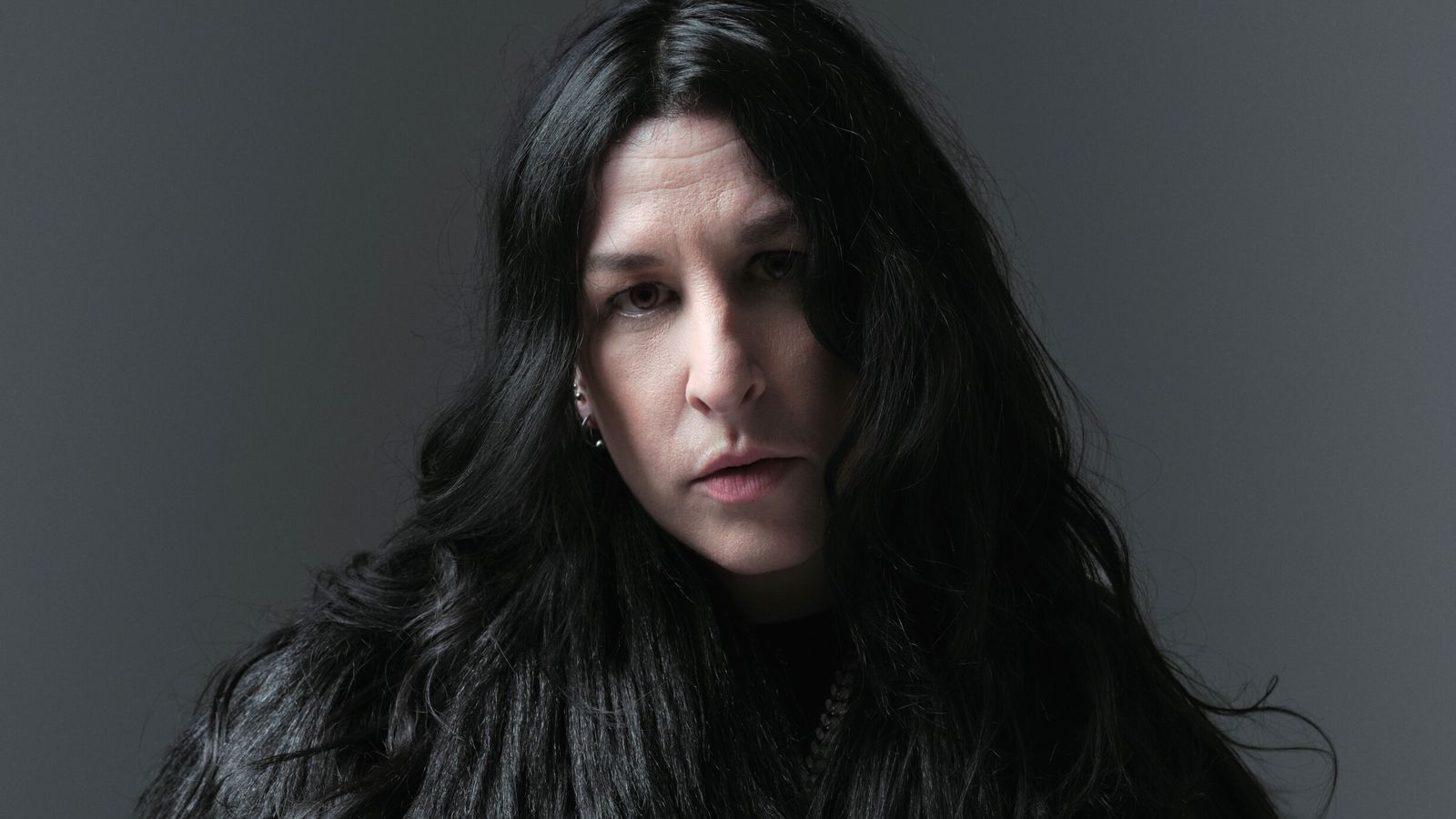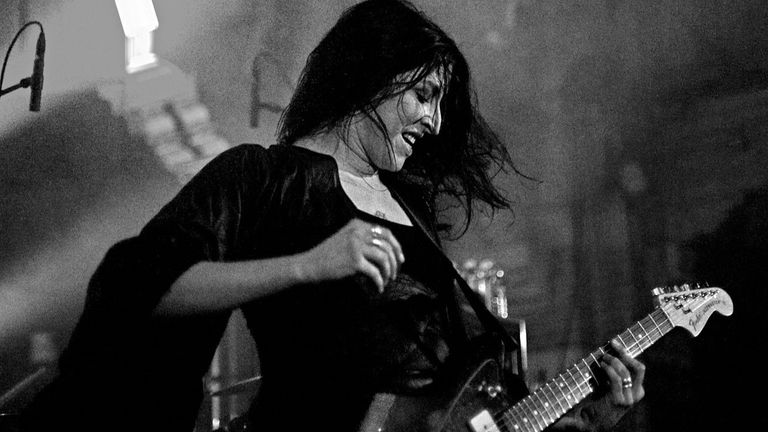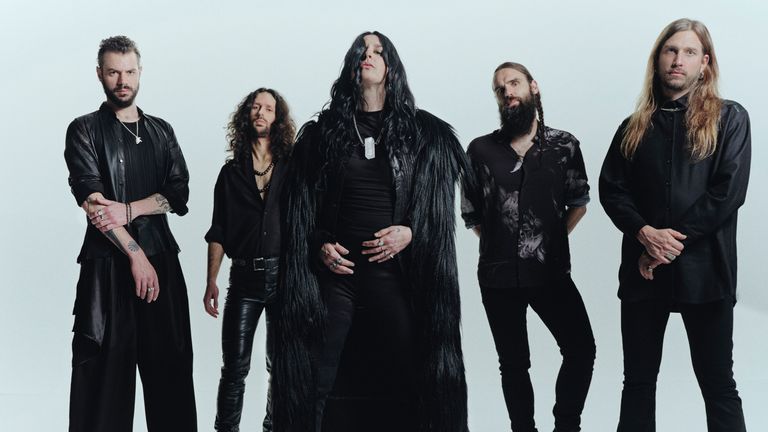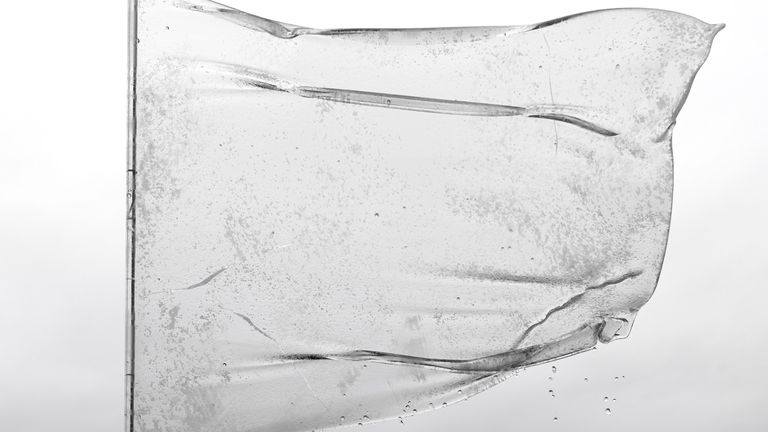For years through childhood and early adulthood, Raven van Dorst felt different. The response evoked in others was always ‘too’: too loud, too wild, too aggressive, too messy.
It wasn’t until a visit to a doctor, aged in their early 20s, that it all fell into place. Having struggled to fit in as a little girl, then a young woman, the medic confirmed van Dorst had been born intersex, with aspects of both male and female sex characteristics, and operated on as a baby. It was something their parents had never spoken about.
“I never felt like a girl,” they say now. “I never felt like a boy either. I didn’t know what to feel, what to think.”
The doctor’s explanation made sense of years of frustration. I got a bit of a malfunctioning in my head, but all of a sudden, a lot became clear. It was kind of a relief… At the same time, I also got very sad. I felt disconnected to my family for a while until I could find the courage and the energy to talk to them about it.”
Now aged 39, van Dorst is a rock musician and presenter, a judge on Drag Race Holland and a well known TV personality in the Netherlands. In 2021, they made the decision to change their name and go by they/ them pronouns. Later this month, their rock-metal band Dool will release third album The Shape Of Fluidity, which tackles the themes of gender and identity in today’s changing world.
While coming to terms with who they are and their past has not been easy, the singer says they want to speak out about their experiences to anyone who might be struggling.
“When I was younger, I didn’t know anything about myself. I thought I was a lesbian, and even that was hard back then. I was desperately trying to find like-minded people and thought they didn’t exist. I was lonely and misunderstood and if I had someone back then who could show me the way, I would [have been] really grateful for that.”
‘They called it normalising’
Following the discovery about their birth, they were told they had been operated on to remove male sex characteristics, at the age of about nine months. “My parents didn’t know what to do with the information,” van Dorst says. “It was in ’84, there was no Google.
“They trusted the doctor, [who] said they had to pick a gender, a biological sex, and ‘adjust’ – mutilate, I feel. They called that ‘normalising’ back in the day, you ‘normalise’ an intersex child and pick a sex, basically. And that’s what they did to me. I got mutilated as a baby.
“My parents were advised never to talk about it with me and everything will be fine, we’ll give the child hormones when they’re reaching puberty, stuff like that. But of course, that didn’t work because I always felt different. And people told me I was different.”
Teachers would say not to behave like a boy. “But I’m not a girl, you know? I felt that it wasn’t me. I lived my whole youth like that.”
Last week, the United Nations Human Rights Council voted to adopt a resolution designed to protect the rights of intersex people, the first initiative of its kind and described as a landmark moment by campaigners.
Read more:
New gender clinics to open in UK
What gender treatments are currently available?
Intersex is a general term for variation within a person’s sex traits, including genitals or internal sex organs, hormones or chromosomes, and the UN estimates that up to 1.7% of babies are born with some form of intersex characteristics.
Many intersex adults exposed to such surgery as children can suffer significant physical and mental suffering, the UN says, including as a result of extensive and painful scarring. Like van Dorst, many also feel they have been forced into sex and gender categories that do not fit.
For van Dorst, it was changing their name and pronouns that made them feel truly liberated. “I felt like I was living the lie the doctors forced me in. They put me in this female straitjacket from which I have been trying to get out of… It took me another couple of years to realise that if I’m not changing my name or changing my pronouns, nothing’s going to change.”
Van Dorst changed details on their passport and on the birth papers that claimed they were born a girl. “Reclaiming my birthright, basically. They tried to erase me from f****** history, erase my nature from history. It’s not right.”
‘It’s okay to be non-conforming’
The name Dool is derived from the Dutch word for wandering, and the singer says the upcoming album is about broader themes of identity, personal to all the bandmates. But their story is inevitably intertwined. The song Venus In Flames deals with “shaking off societal expectations, obliterating gender roles”, while Hermagorgon features “gorgon”, the Greek word for female monsters.
“I feel that those doctors, when I was born and they were standing at my cradle, they saw a little monster. They saw a monster, and they tried to fix it. I’m singing, you can’t fix me. I’d rather be your f****** monster than live the lie you’ve made for me.”
Van Dorst says they sought solace in music to escape bullying in childhood, “for being too boyish, too ugly”, and recalls hearing Nirvana for the first time.
“When I was younger, I would dress up like Kurt Cobain, tear up my trousers, dye my hair green and have a mohawk or whatever. I discovered very soon that if you do that on the streets, people make fun of you. But if you go on stage, people think you’re cool. A freak on the streets, but a hero on the stage.”
As the debate around transgender rights continues, The Shape Of Fluidity aims to show how identity can change, with artwork featuring a flag made out of ice.
“It feels that ever since COVID, the world is going a little bit mad,” says van Dorst. “Polarisation is a really big issue, misinformation is a really big issue, you don’t know what you can believe. Everything that comes through your phone… it’s so much, more than a human brain can handle, in a way.
“This is something we try to address on the album. On the cover, you see a flag, a symbol of identity. You have the UK flag, you can say, this is my country, or there’s a rainbow flag – this is my community – or the flag of your favourite football club. It appeals to a certain part of your identity. And this flag of ours is a changing element, it can evaporate, it can freeze, it can fall from the sky.
“That is exactly what we as a band try to express: it’s okay to be non-conforming and to change and to shape yourself. You don’t have to be a finished and polished person all the time. You can have doubts… I hope it appeals to soul-searching people like us.”
Our interview follows the recent comments made by Harry Potter author JK Rowling, who dared police to arrest her over legislation that came into force in Scotland earlier this month.
The new measures aim tackle harm caused by hatred and prejudice, extending protections from abusive behaviour to people on grounds including age, disability, religion, sexual orientation and transgender identity. Critics such as Rowling claim the legislation could stifle free speech – and fails to extend these protections to women. The author has been widely condemned in recent years for her views on transgender rights.
Read more from Sky News entertainment:
Love Island star Georgia Steel on the impact of trolling
Why music is heading back to the noughties
Van Dorst says they believe in free speech and understand some of Rowling’s points, but that her arguments are “dangerous”.
“I think people can say whatever the f*** they want, but they should expect a reply, too. She’s acting as if she’s being silenced but no one is silencing her.
“I really do get her points. She wants to protect female rights and they always have been under fire. But she must understand what the LGBT and trans community is going through. I mean, women have been going through that for centuries as well. She should be an ally, in my opinion, not an enemy.
“There should also be space for others, just like there’s now more space for women than there’s been in the centuries before. It’s dangerous and it’s kind of hateful.”
For Dool, van Dorst hopes the music can offer comfort, support, a friend, even, to anyone struggling.
“It’s been a long process, a hard process, I’m not going to lie. I don’t feel like a victim or anything, but it hasn’t been easy.
“Ever since I came out, I’ve had so much response from kids and parents and people in general fighting with gender issues. Struggling with a lot of stuff, and they say [things like], ‘Your story helped me so much because now I can talk to my grandmother, who really likes you on television and thinks you’re really funny. Now I can say, grandma, I kind of feel like Raven does’.
“I never aimed for that. I just basically wanted to rid myself of the straitjacket I was put in. But at the same time, accidentally, it helped a lot of people. Now I understand that it’s important to speak a little louder about this – especially with all the violent voices that are arising all around us at the moment.”
The Shape Of Fluidity is released on 19 April and Dool will perform at Damnation Festival in Manchester in November



